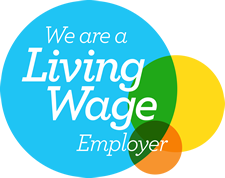
Insights
Helping not-for-profit organisations develop and sustain
the highest levels of employee and volunteer engagement

Insights

Rob Hayter, Director, TPP Recruitment
At the opening of a recent governance conference attended by TPP, the speaker from the Department for Business, Energy & Industrial Strategy (BEIS) reiterated a very basic reason to diversify corporate boards: there is a direct link between a diverse (inclusive) board and an increase in bottom line profitability. For “profit” we read “impact”.
Alison Reynolds and David Lewis in the Harvard Business Review said that, “Cognitive diversity has been defined as differences in perspective or information processing styles. It is not predicted by factors such as gender, ethnicity, or age.” Having Board members with different thinking and different experiences, from varied backgrounds and with varied outlooks is key.
HR Directors often ask TPP to prove how we would provide “a diverse longlist”. A glib response is that by outsourcing your search you are guaranteeing a more diverse list than one they would have built via a job board (or worse, by current Trustees asking their friends). Clearly, advertising the same vacancy in the same way and in the same places is very likely to lead to the same result. Often, the board is asking us to find more females or more non-white candidates.
Are there barriers to your Board?
Some obvious challenges to diversifying away from a stereotypical board membership range from: the time that meetings commence; length and frequency of meetings (the majority of boards meet 4-6 times per year); to location, and perhaps beneficiary type. But assuming these are managed, the next stage is to embed these new thinkers; building a high-performing team of equals from different, disparate individuals is critical.
At a recent Chartered Governance Institute (ICSA) seminar entitled “Effective Preparation for Board Meetings” one interesting idea was to draw up a table plan to ensure equity around the table. If all speakers sit together and present their papers from one side of the room, it can stifle discussion as others feel they are not empowered to question. Similarly, if new recruits are sitting together, they are less likely to engage. And a Chair positioned somewhere on the long side of a table will not even be able to see 30% of attendees; hardly inclusive!
Are there barriers to inclusivity?
Good practice basics regarding board papers include giving clear reasons as to why the paper is coming to Board and what outcome is being sought. Executive summaries at the top of the paper are valuable, and omitting jargon or acronyms is desirable, in particular for newer board members who often spend several months in a haze attempting to understand organisational intricacies, causal specifics and governance requirements.
The ICSA’s report “A View at the Top” studied boardroom trends at Britain’s Top 100 commercial Companies. Re-running research first carried out in 1996 to compile a list of the “UK’s Most Admired Companies”, three trends were highlighted. One was that the boards of those companies had a greater percentage of female members, and a second trend was that they had a lower percentage of members with an accounting background. Whilst there were no doubt wider reasons to these answers, both points show that the more diverse groups were admired more highly.
Are there barriers between Board and executive?
The third trend highlighted that corporate boards with a greater involvement of the executive were more admired. Whilst this is clearly from a study of firms who have paid executives on their Board, this could also extend to non-profits and how their executives are asked to input. The Chair / CEO relationship is key but more work building relationships between the Senior Management Team and Trustees should also reap rewards.
Inclusivity requires proactivity whether inter- or intra-team and so it does for diversity too. Looking outside your normal pool, your usual network, the “sector job-boards” is essential and whilst TPP is very well-placed to assist, there are lots of other places to consider; an excellent guide that we contributed to is hosted on the Getting on Board site.
Some of what we do is to endorse what an in-house HR professional already knows and is struggling to get the Board to listen to, unlocking important budget that could have as much an impact on beneficiaries as money spent directly on a service. TPP can help you diversify your Board and your organisation, and in our own small way increase your impact.
Please contact Rob Hayter, Recruitment Director at TPP Recruitment, on 020 7198 6060 or on: rob.hayter@tpp.co.uk for a confidential discussion on how we might assist.
Agenda Consulting
Belsyre Court
57 Woodstock Road
Oxford
OX2 6HJ
UK
Company No: 4509427
